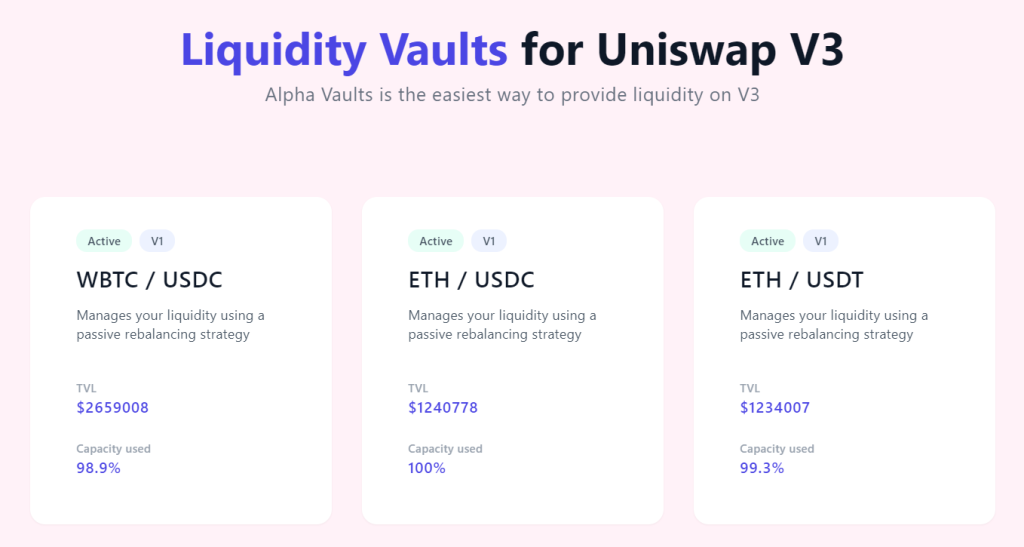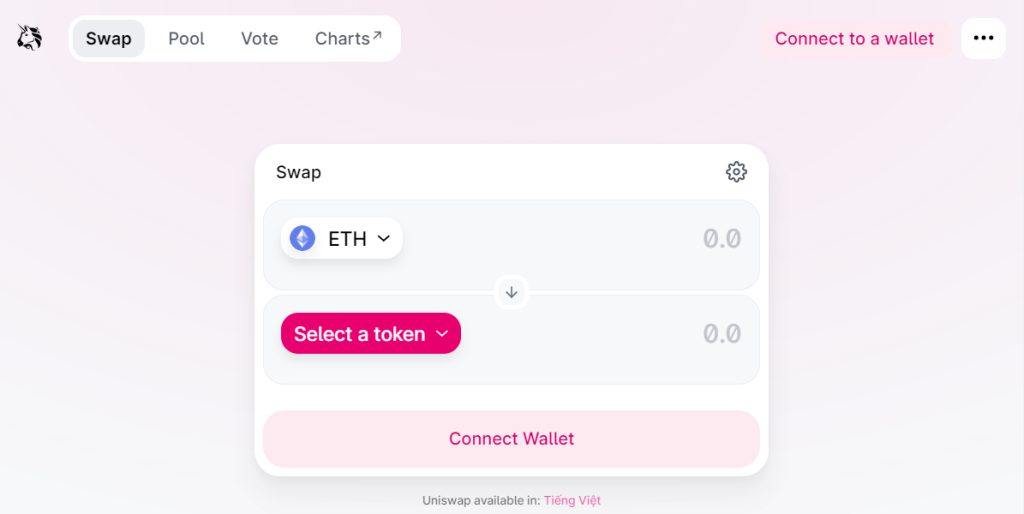
Yes, the Uniswap iOS app is safe if downloaded from the official App Store. It uses robust security features like local storage of private keys, encryption, and biometric authentication. Ensure you verify the developer is “Uniswap Labs” and keep the app updated to maintain security.
Is the Uniswap iOS App Safe?
App Verification and Source
Downloading from the App Store
Ensuring the safety of the Uniswap iOS app begins with downloading it from a verified source. Always download the app from the official Apple App Store to guarantee that you are getting a legitimate and secure version.
- Official Source: The Apple App Store is the only official source for downloading the Uniswap iOS app. Avoid downloading the app from third-party websites or unofficial sources, as these can be risky and may contain malware.
- Direct Links: For added safety, you can visit the official Uniswap website and follow the direct link to the App Store. This ensures that you are directed to the correct app.
Checking Developer Credentials
Before downloading the app, it’s essential to verify the developer’s credentials to ensure the app’s authenticity and security.
- Developer Verification: The official Uniswap app should be developed by “Uniswap Labs.” This information can be found on the app’s details page in the App Store. Confirm that the developer name matches this to avoid downloading counterfeit apps.
- App Reviews and Ratings: Check the app’s reviews and ratings in the App Store. A legitimate app typically has numerous reviews and a high rating from users. Reading through user feedback can provide insights into the app’s reliability and security.

Security Features
Private Key Management
Private key management is a critical aspect of the security features provided by the Uniswap iOS app. Proper handling of private keys ensures that only you have access to your crypto assets.
- Local Storage: The Uniswap iOS app stores private keys locally on your device, not on external servers. This minimizes the risk of hacking and unauthorized access.
- Encryption: Private keys are encrypted using advanced encryption standards, making it extremely difficult for attackers to decrypt and access your assets without authorization.
- Seed Phrase Backup: Upon creating a new wallet, the app generates a 12-word seed phrase. This seed phrase is essential for recovering your wallet if you lose access to your device. Users are prompted to write down and securely store their seed phrase during the setup process.
- No Custody: Uniswap does not have access to your private keys, ensuring that you maintain full control over your funds at all times.
Biometric Authentication
Biometric authentication adds an additional layer of security to the Uniswap iOS app, making it more convenient and secure to access your wallet.
- Fingerprint Recognition: The app supports fingerprint recognition, allowing you to unlock your wallet and authorize transactions using your fingerprint. This method is both secure and quick, reducing the need to enter complex passwords frequently.
- Face ID: For devices that support Face ID, the app can use facial recognition to authenticate users. Face ID provides a high level of security and convenience, ensuring that only you can access your wallet.
- Secure Access: Biometric authentication ensures that even if someone gains physical access to your device, they cannot access your wallet without your biometric data. This feature significantly reduces the risk of unauthorized access.
- Two-Factor Authentication (2FA): In addition to biometric authentication, enabling two-factor authentication (2FA) adds another layer of security by requiring a second form of verification, such as a code sent to your phone, when accessing your wallet or performing transactions.
User Reviews and Ratings
Analyzing App Store Reviews
User reviews and ratings on the App Store provide valuable insights into the reliability and security of the Uniswap iOS app. Here’s how to analyze them effectively:
- Overall Rating:
- High Ratings: Look for apps with high overall ratings (4 stars and above). A high rating typically indicates user satisfaction with the app’s performance and security.
- Number of Reviews: An app with a large number of reviews generally means it has a broad user base and is more likely to be reliable.
- Detailed Reviews:
- Positive Feedback: Pay attention to positive reviews that highlight ease of use, effective security features, and seamless integration with Uniswap. Users often praise the app for its intuitive interface and strong security measures, such as biometric authentication.
- Negative Feedback: Consider any negative reviews that point out potential issues. Common complaints might include bugs, performance issues, or difficulties with certain features. Understanding these can help you gauge the app’s reliability and potential areas for improvement.
- Update Frequency:
- Recent Reviews: Check the dates of the most recent reviews to ensure that the feedback is current and relevant. Regular updates and improvements by the developer are signs of an active and committed development team.
Community Feedback
Beyond the App Store, community feedback on social media and forums provides additional insights into the Uniswap iOS app’s performance and security.
- Social Media Platforms:
- Twitter: Follow Uniswap’s official Twitter account and search for user tweets about the app. Twitter is a popular platform for real-time feedback and announcements. Users often share their experiences and issues, providing a broad perspective on the app’s performance.
- Reddit: Check relevant subreddits like r/Uniswap and r/CryptoCurrency for discussions about the Uniswap iOS app. Reddit users frequently post detailed reviews and troubleshooting tips, offering a deeper understanding of the app’s strengths and weaknesses.
- Community Forums:
- Uniswap Forum: Visit the official Uniswap community forum where users discuss various aspects of the app, including security features, usability, and any issues encountered. Forums are a great place to find in-depth discussions and solutions from experienced users.
- Crypto Forums: Explore other cryptocurrency forums where Uniswap users might share their experiences. These forums can provide diverse perspectives and additional support resources.

Data Privacy
Handling Personal Data
Ensuring the privacy and security of your personal data is crucial when using the Uniswap iOS app. Here’s how the app handles personal data:
- Minimal Data Collection:
- No Personal Identifiable Information (PII): The Uniswap iOS app does not require users to provide personal identifiable information such as names, addresses, or social security numbers. This minimizes the risk of personal data being exposed.
- Anonymous Usage: Users can interact with the app anonymously. All transactions and activities are conducted using blockchain addresses, which do not reveal personal information.
- Transaction Data:
- On-Chain Transparency: While transaction data is recorded on the Ethereum blockchain, it is pseudonymous. This means that while transactions are publicly visible, they are not directly linked to personal identities.
- Internal Logging: The app may log usage data internally to improve functionality and user experience, but this data is typically anonymized and not linked to individual users.
- Third-Party Services:
- Limited Sharing: The Uniswap app limits the sharing of data with third-party services. If integration with third-party services is required (e.g., for analytics or customer support), the app ensures that these services adhere to strict data privacy standards.
Encryption Practices
The Uniswap iOS app employs robust encryption practices to protect user data and ensure secure interactions.
- Data Encryption:
- AES Encryption: The app uses Advanced Encryption Standard (AES) to encrypt sensitive data stored on the device. This includes private keys and transaction data, ensuring that even if the device is compromised, the data remains secure.
- TLS Encryption: All data transmitted between the app and Uniswap’s servers is encrypted using Transport Layer Security (TLS). This prevents interception and ensures that data remains confidential during transmission.
- Private Key Security:
- Local Storage: Private keys are stored locally on the user’s device and are never transmitted over the internet. This local storage is protected by the device’s security mechanisms, such as biometric authentication and encryption.
- Seed Phrase Encryption: The seed phrase generated during wallet setup is encrypted and stored securely. Users are advised to write down their seed phrase and store it offline to prevent unauthorized access.
- Regular Security Audits:
- Code Reviews: The Uniswap iOS app undergoes regular security audits and code reviews to identify and address potential vulnerabilities. This proactive approach helps maintain the highest security standards.
- Bug Bounty Programs: Uniswap often runs bug bounty programs, inviting security researchers to identify and report vulnerabilities. This community-driven approach enhances the app’s security.

Regular Updates and Patches
Frequency of Updates
Regular updates are crucial for maintaining the security and performance of the Uniswap iOS app. Here’s how Uniswap ensures the app stays current and secure:
- Frequent Releases:
- Monthly Updates: The Uniswap iOS app typically receives updates on a monthly basis. These updates include new features, performance enhancements, and bug fixes.
- Emergency Patches: In response to critical vulnerabilities or major bugs, emergency patches are deployed as needed to ensure the app remains secure and functional.
- Version Tracking:
- Release Notes: Each update comes with detailed release notes outlining the changes made, including new features, enhancements, and security fixes. Users can review these notes to understand the benefits of each update.
- User Notifications: Users are notified through the App Store and within the app itself when new updates are available, encouraging them to keep their app up to date.
Addressing Security Vulnerabilities
Proactively addressing security vulnerabilities is a key aspect of maintaining a secure application. Here’s how the Uniswap iOS app handles security issues:
- Regular Security Audits:
- Internal Audits: Uniswap conducts regular internal security audits to identify and fix potential vulnerabilities. These audits involve thorough reviews of the app’s codebase and security practices.
- External Audits: Third-party security firms are often engaged to perform external audits, providing an unbiased assessment of the app’s security posture. This includes penetration testing and code reviews.
- Bug Bounty Programs:
- Community Engagement: Uniswap runs bug bounty programs to incentivize security researchers and ethical hackers to find and report vulnerabilities. Participants are rewarded for their findings, which helps uncover issues that might not be detected through regular audits.
- Continuous Monitoring: The bug bounty program operates continuously, ensuring that new vulnerabilities can be identified and addressed promptly.
- Prompt Vulnerability Patching:
- Rapid Response: When a security vulnerability is discovered, Uniswap prioritizes its resolution. Critical vulnerabilities are patched immediately through emergency updates, while less severe issues are addressed in the next scheduled update.
- User Communication: Users are informed about significant security updates and patches through release notes and in-app notifications, ensuring they understand the importance of updating their app.
- Security Best Practices:
- Encryption: The app employs industry-standard encryption techniques to protect user data, including private key encryption and secure data transmission.
- Authentication: Advanced authentication methods, such as biometric authentication and two-factor authentication (2FA), are implemented to enhance user security.
- Secure Development Lifecycle: Security is integrated into every stage of the app development process, from initial design to final deployment. This ensures that security considerations are a core part of the app’s architecture.

Comparing with Other Wallet Apps
Security Comparison
When comparing the Uniswap iOS app to other popular wallet apps, security is a primary concern. Here’s how Uniswap measures up:
- MetaMask:
- Private Key Management: Like Uniswap, MetaMask stores private keys locally and uses encryption to protect them. Both apps ensure that private keys never leave the device.
- Biometric Authentication: MetaMask supports biometric authentication (fingerprint and facial recognition) for added security, similar to Uniswap.
- Two-Factor Authentication: While MetaMask primarily relies on strong password protection and biometric authentication, it also encourages the use of hardware wallets for added security.
- Trust Wallet:
- Local Storage of Private Keys: Trust Wallet also stores private keys locally on the device with strong encryption, comparable to Uniswap.
- Security Features: Trust Wallet supports biometric authentication and has strong security measures to protect user data and funds.
- Seed Phrase Backup: Like Uniswap, Trust Wallet generates a recovery seed phrase that users must store securely offline.
- Coinbase Wallet:
- Private Key Management: Coinbase Wallet stores private keys locally and uses robust encryption methods to protect them.
- Additional Security Layers: Coinbase Wallet includes biometric authentication and two-factor authentication (2FA) to enhance security.
- Reputation: Being part of the larger Coinbase ecosystem, Coinbase Wallet benefits from the security practices and reputation of one of the largest cryptocurrency exchanges.
Feature Comparison
In addition to security, feature availability is a crucial aspect when comparing the Uniswap iOS app to other wallet apps:
- MetaMask:
- DApp Integration: MetaMask is known for its extensive dApp integration, allowing users to interact with various decentralized applications directly within the wallet.
- Network Support: MetaMask supports multiple Ethereum-based networks and custom RPC networks, providing flexibility for advanced users.
- User Interface: MetaMask offers a user-friendly interface that is intuitive for both beginners and experienced users.
- Trust Wallet:
- Multi-Currency Support: Trust Wallet supports a wide range of cryptocurrencies, including ERC-20, BEP-20, and other tokens. This makes it a versatile choice for users with diverse crypto portfolios.
- Staking and Earning: Trust Wallet offers staking options for certain cryptocurrencies, allowing users to earn rewards directly within the app.
- Built-in DApp Browser: Trust Wallet includes a built-in browser for accessing decentralized applications, making it easy to interact with DeFi platforms like Uniswap.
- Coinbase Wallet:
- Coinbase Integration: Coinbase Wallet seamlessly integrates with the Coinbase exchange, allowing users to transfer funds easily between the wallet and the exchange.
- Multi-Asset Support: The wallet supports a broad range of cryptocurrencies, similar to Trust Wallet.
- Ease of Use: Coinbase Wallet is designed with a simple and intuitive interface, making it accessible for users of all experience levels.

Best Practices for Safe Use
Setting Strong Passwords
Creating and maintaining strong passwords is crucial for securing your Uniswap wallet and other related accounts. Here are some best practices for setting strong passwords:
- Complexity:
- Use a Mix: Create passwords that include a combination of uppercase and lowercase letters, numbers, and special characters. This complexity makes it more difficult for hackers to guess or crack your password.
- Avoid Common Words: Do not use easily guessable information such as names, birthdates, or common words. Instead, use a random mix of characters.
- Length:
- Minimum Length: Aim for a password that is at least 12 characters long. Longer passwords are generally more secure and harder to crack through brute-force attacks.
- Unique Passwords:
- Different for Each Account: Use a unique password for each of your accounts, especially for your wallet and email accounts. This prevents a single compromised password from affecting multiple accounts.
- Password Manager:
- Use a Password Manager: Consider using a reputable password manager to generate, store, and manage your passwords securely. Password managers can create complex, unique passwords for each of your accounts and store them safely.
- Regular Updates:
- Change Passwords Periodically: Regularly update your passwords to maintain security. Avoid reusing old passwords or slight variations of them.
Avoiding Phishing Scams
Phishing scams are common and can lead to the compromise of your wallet and personal information. Here are some tips to help you avoid phishing scams:
- Verify URLs:
- Check Website Addresses: Always double-check the URL of the websites you visit, especially when accessing your wallet or making transactions. Phishing sites often use URLs that are similar to legitimate sites but with slight variations.
- Bookmark Trusted Sites: Bookmark the official Uniswap website (uniswap.org) and other important sites to ensure you are always visiting the correct URL.
- Email and Message Scams:
- Beware of Unsolicited Messages: Be cautious of unsolicited emails, messages, or social media contacts claiming to be from Uniswap or related services. Scammers often use these channels to trick you into providing your login details or seed phrase.
- Do Not Click on Suspicious Links: Avoid clicking on links or downloading attachments from unknown or suspicious emails and messages. These could lead to phishing sites or malware.
- Secure Communication Channels:
- Use Official Channels: Only use official communication channels for support and information. Check the official Uniswap website or verified social media accounts for announcements and updates.
- Verify Identities: If someone contacts you claiming to be from Uniswap support, verify their identity through official channels before providing any information.
- Two-Factor Authentication (2FA):
- Enable 2FA: Whenever possible, enable two-factor authentication on your accounts. This adds an extra layer of security by requiring a second form of verification, such as a code sent to your phone.
- Education and Awareness:
- Stay Informed: Keep yourself updated on common phishing tactics and how to recognize them. Educate yourself and others about the importance of security practices.
- Report Suspicious Activity: If you encounter a phishing attempt, report it to the relevant platform or service provider. This helps protect others and may lead to the scam being shut down.